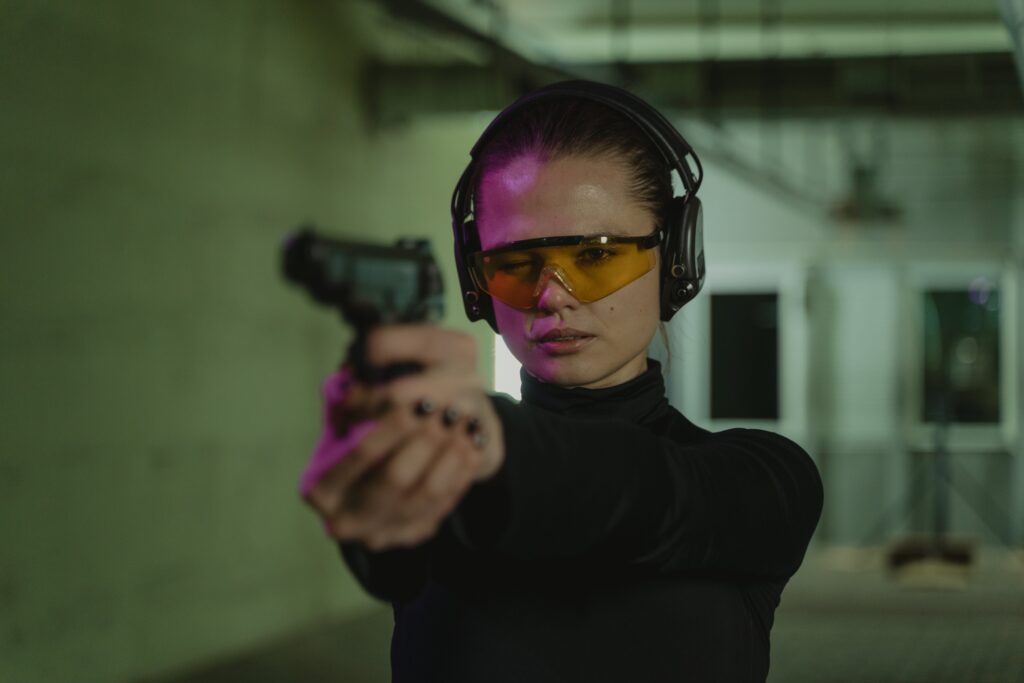
The Role of an Orange County Gun Defense Attorney
Understanding California’s intricate firearms laws can be quite intimidating for gun owners and individuals who are dealing with firearms-related charges. Amid this multifaceted legal landscape, the importance of a seasoned gun defense attorney cannot be overstated, as they are crucial in securing the most favorable results in cases relating to firearms. These attorneys not only help in deciphering the subtleties of state and federal gun laws but also offer expert legal assistance and defense strategies. Such proficient legal representation is essential in safeguarding your Second Amendment rights. Two notable affiliations that demonstrate an attorney’s expertise in gun defense are the USCCA Critical Response Team Network and the NRA Certified Pistol Instructor status.
The United States Concealed Carry Association (USCCA) Critical Response Team Network is a group of highly qualified professionals, including: Experienced criminal defense attorneys; Personalized service and support providers; Attorneys who receive various benefits, including assured fees, the opportunity to serve as a resource for the team, and the capacity to promptly respond to self-defense incidents involving firearms.
Members of the USCCA Critical Response Team Network provide support and guidance to responsible gun owners involved in self-defense shootings or facing gun crime charges.
Earning an NRA Certified Pistol Instructor certificate also indicates that one has fulfilled the National Rifle Association’s (NRA) requisite training and certification criteria for instructing and educating others in pistol shooting and firearm safety, including the proper handling of a loaded gun. This certification attests to one’s proficiency in pistol shooting techniques, marksmanship, and firearm safety protocols.
An NRA Certified Pistol Instructor has the advantage of comprehensive knowledge and training on firearm safety, shooting fundamentals, and responsible firearm use. The certification program covers topics such as:
- Firearm operation
- Safe handling
- Cleaning and repair
- Legal aspects of self-defense and the use of firearms
The bottom line is a defense attorney with an NRA Certified Pistol Instructor certificate is armed with the knowledge, expertise, and a deep understanding of both the legal and practical aspects of firearms, ensuring they’re prepared to protect both their clients’ rights and their Second Amendment freedoms in the state of California.
What Constitutes Gun Defense and What Are Strategies for Defending Gun-Related Charges
Anyone facing gun charges should understand California’s firearms laws and their consequences facing gun charges, as well as the impact of federal gun laws on California cases. California gun control laws govern the possession of firearms and ammunition, specifying who may own or possess them and which firearms are legal or illegal to own or possess. A conviction for a firearms offense in California may lead to disastrous consequences, such as incarceration and enhanced sentencing as mandated by the state of California’s penal code 12022.53.
Federal gun laws can have a significant impact on California cases. The primary divergence between federal and California state gun laws is that federal gun laws are applicable across the US, while California state gun laws are specific to the state of California. Some key differences include:
- California’s gun laws are stricter than those at the federal level
- California requires obtaining a permit to carry a concealed handgun beyond the home
- California prohibits the sale of particular assault weapons
Federal gun laws generally take precedence over California gun laws when there is a conflict between the two. This principle is rooted in the Supremacy Clause of the United States Constitution (Article VI, Clause 2), which establishes that federal law is supreme when there is a conflict with state law. The following are solid examples of when federal laws supersede state laws:
Federal Firearms Act: The federal government has enacted comprehensive firearms legislation, including the National Firearms Act (NFA) and the Gun Control Act (GCA). These federal laws regulate the manufacture, sale, and possession of certain firearms, such as machine guns and silencers.
Firearms Transactions: Federal law requires background checks for all firearm sales by licensed dealers, which includes commercial firearms transactions. This requirement is enforced through the National Instant Criminal Background Check System (NICS).
Interstate Commerce: Federal law regulates firearms that have been involved in interstate commerce. For example, if a firearm is manufactured in one state and sold in another, it falls under federal jurisdiction.
Supreme Court Precedents: The U.S. Supreme Court has upheld the supremacy of federal gun laws. In the case of Printz v. United States (1997), the Court affirmed that state and local law enforcement officials are not obligated to enforce federal firearms laws, but they cannot obstruct their enforcement.
Preemption: In some cases, federal law explicitly preempts state law. For instance, the Firearm Owners Protection Act (FOPA) contains provisions that preempt certain state laws related to the transportation of firearms.
However, it’s essential to note that states like California can still impose additional regulations and restrictions on firearms, as long as they do not directly conflict with federal law. This means that while federal laws set a baseline, states like California can have stricter gun control measures, such as assault weapons bans and magazine capacity limits (pending litigation notwithstanding), which coexist alongside federal regulations. Understanding the interplay between federal and state laws is crucial for both firearm owners and legal professionals operating in California.
At Criminal Defense Heroes, P.C., our attorneys have years of experience defending the gun rights of Californians. We understand the nuances of the law and the best strategies for maintaining Second Amendment rights. Contact us today at 323-529-3660 for a free consultation.









